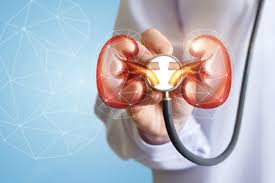Chronic hypertension, a rising global health concern, can cause significant damage to vital organs, including the kidneys, digestive system, brain, and eyes, doctors warned on Friday. They said that hypertension also poses serious risks during pregnancy for both maternal and fetal health, urging early detection and consistent management.
Senior physician Dr Mushtaq Ahmad Lone said the hypertension affects over 1.3 billion people worldwide. He added that many remain unaware of their condition until serious complications develop.
“Hypertension is not just about high blood pressure, but about what that silent pressure is doing to your organs,” Dr Lone said. He stressed the importance of preventive care, regular blood pressure monitoring, and adherence to treatment, especially for patients preparing for surgeries. “Poorly managed hypertension often leads to last-minute surgery cancellations due to complications. It needs to be addressed early,” he added.
Gynaecologist Dr Nawaz underscored the risks of high blood pressure during pregnancy. “Hypertension in expectant mothers can lead to preeclampsia, preterm birth, low birth weight, and even stillbirth,” he said. He advised that both mother and fetus require close monitoring, particularly in the second and third trimesters, to prevent life-threatening conditions.
“Proper prenatal screening and timely interventions can save lives. Expecting mothers should not ignore even mild elevations in blood pressure,” Dr Nawaz said, adding that advancements in maternal healthcare have improved monitoring and outcomes in hypertensive pregnancies.
Internal medicine expert Dr Irfan Gul explained the direct impact of hypertension on the kidneys. “Persistent high blood pressure damages the blood vessels in the kidneys, leading to chronic kidney disease (CKD) or even kidney failure,” he said, adding that declining kidney function triggers a chain reaction, including electrolyte imbalance, fluid retention, and increased cardiovascular risk.
“Controlling blood pressure is crucial for protecting renal health. Patients at higher risk, such as diabetics, must be especially cautious,” he warned.
Dr Gul added that hypertension significantly raises the risk of stroke, aneurysms, and cognitive decline. “Sustained high pressure can cause small vessel disease in the brain, impairing memory, attention, and executive function,” he said.
He said that long-term hypertension can cause abdominal bloating, reduced blood flow to digestive organs, and even intestinal ischemia. “Managing hypertension requires a holistic approach—diet, exercise, stress control, and medication adherence are all vital,” Dr Gul advised.
Doctors cautioned that chronic hypertension is often a “silent killer”, saying that many do not realise the damage until it’s too late. They urged the public to prioritise regular health check-ups, adopt a healthy lifestyle, and seek immediate medical attention if experiencing symptoms such as frequent headaches, fatigue, or vision problems.
“Timely intervention can prevent a cascade of complications, whether for a mother, a heart patient, or someone with mild kidney issues,” they said—(KNO)







